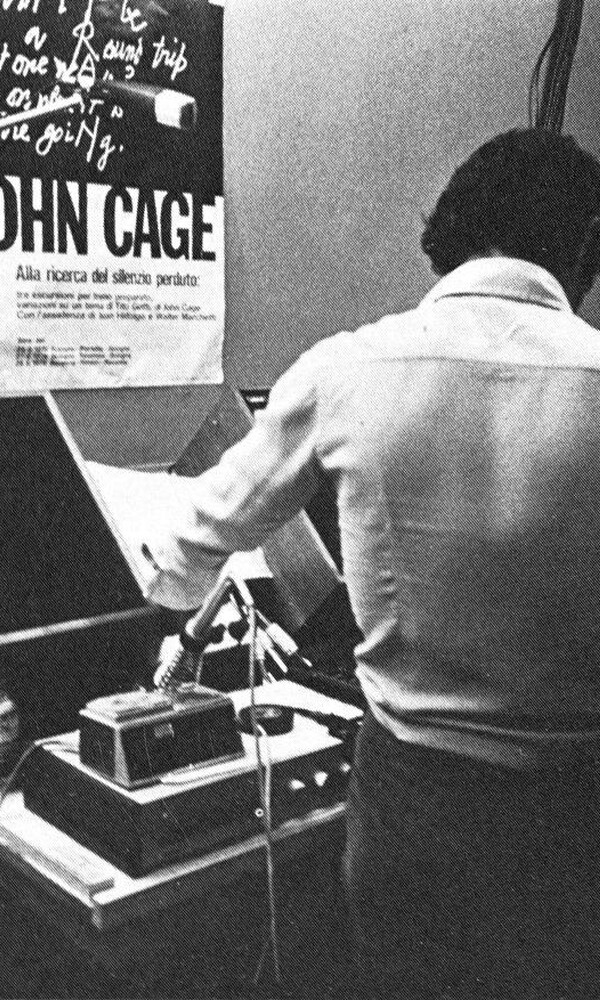John Cage is born in Los Angeles on 5 September 1912. During the 1930s he studies music and composition with Henry Cowell and Arnold Schönberg, among others. From 1940 onwards Cage lives in New York and becomes known in avant-garde circles for his idiosyncratic compositions and experimental approach to expanding the realm of music. From 1941 he teaches classes at the Chicago School of Design and from 1948 at Black Mountain College in North Carolina, where he works alongside and exchanges ideas with visual artists; these connections with the likes of Anni and Josef Albers, László Moholy-Nagy and Robert Rauschenberg become a major source of inspiration for him. In 1952 Cage stages Untitled Event at Black Mountain College, which is later acknowledged as having been the first 'happening'. He begins to use chance operations based on the I Ching in his work. From 1956 he teaches classes at the School for Social Research in New York, which are attended by many artists involved in the nascent Fluxus movement, such as George Brecht and Allan Kaprow. From 1965 onwards, Cage's friendship with Marcel Duchamp is cemented by a shared love of chess. Starting in the 1970s, his scores, which go far beyond simple musical notation, are exhibited in art galleries and museums, including a show at the Museum of Modern Art in New York in 1977. In 1978 he accepts an invitation to engage in printmaking at the Crown Point Press, where he produces numerous series of prints during annual visits for the rest of his life. In 1987 Cage's sound installation Writing through Essay. On the Duty of Civil Disobedience is presented at documenta 8 in Kassel. His operas Europeras 1 & 2 are first performed in Frankfurt am Main. John Cage dies on 12 August 1992, shortly before his 80th birthday, which is celebrated posthumously with concerts, festivals and exhibitions around the world.
During his lifetime Cage created more than 250 musical compositions, numerous audiovisual works, performances, installations and pictorial artworks. He gave public readings and lectures and wrote many theoretical and literary texts.
